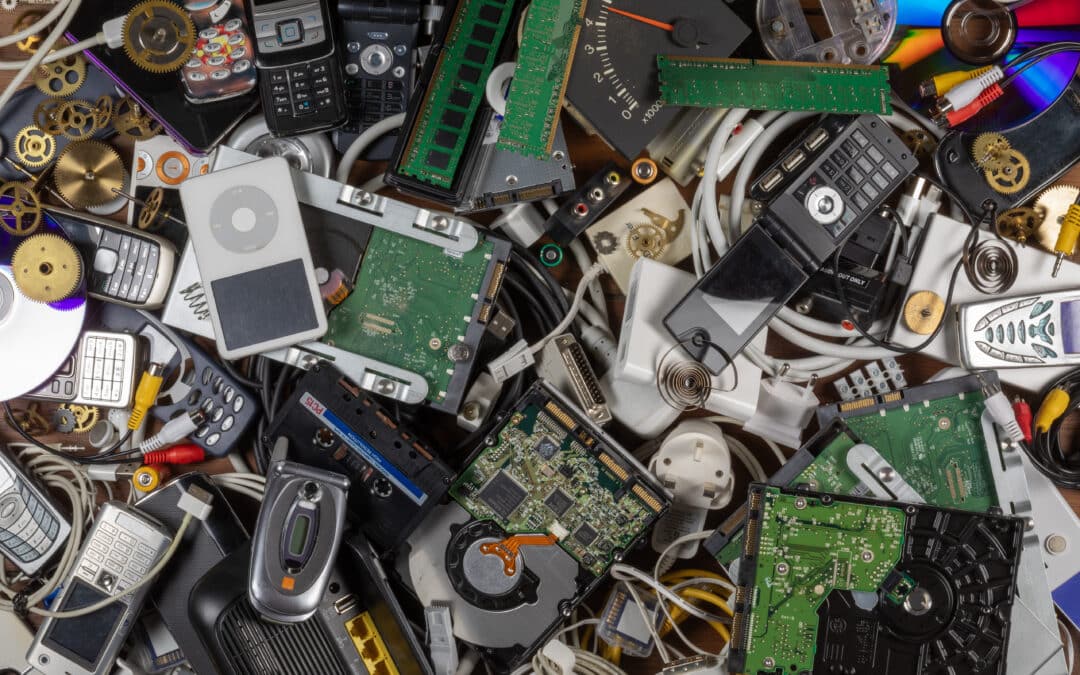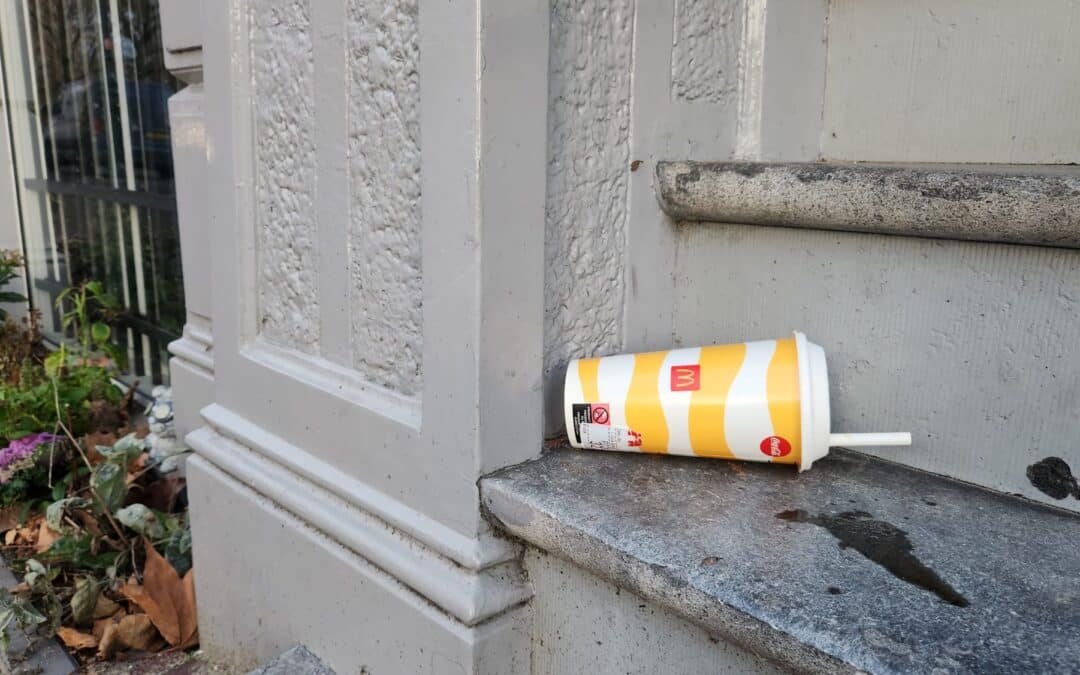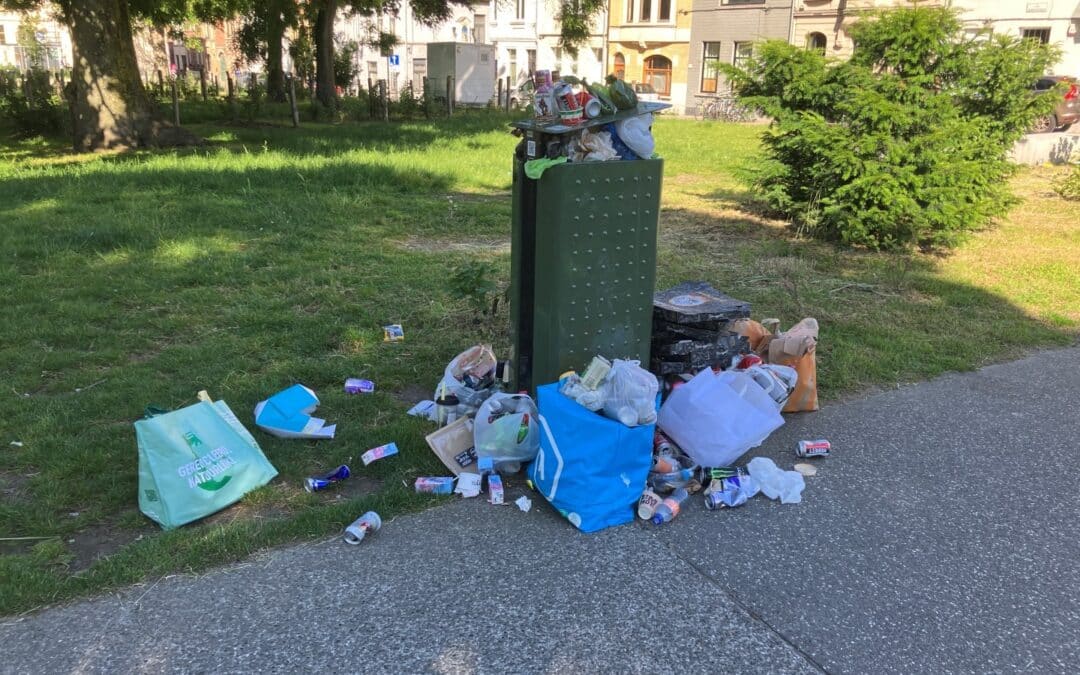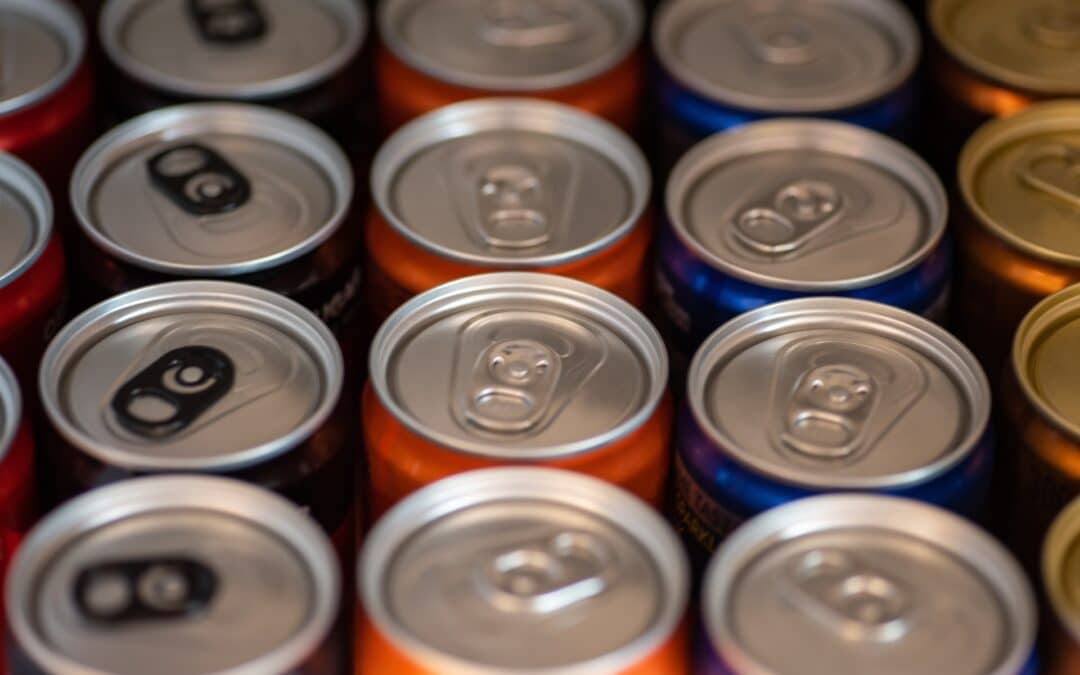A new report from Verpact was released today with collection figures for plastic bottles and cans. For both beverage packaging, the law stipulates that 90% must be collected again; for bottles by 2022, for cans from the year 2024*. Today’s figures show that this target is far from being met. For bottles, this is the second year in a row; for cans, these are the first figures.
Virtually no progress was made to meet legal target for plastic bottles
Return rates for plastic bottles in 2023 remain at 71%. By 2022, 68% of large and small plastic bottles were returned. This means that a progress of only 3% was made in one year, and we are almost as far away from the statutory collection target of 90% as we were in 2022.
“Comparisons with countries such as Norway and Denmark that took 8 to 11 years to achieve 90% collection, according to Verpact, are not valid. There was no statutory target as in the Netherlands, so those examples are not relevant. There are also countries where it does work: in Lithuania, for example, over 90% of the beverage containers with deposits were returned after just 1.5 years,” says Suze Govers on behalf of Fair Resource Foundation.
Only 50% of cans collected again by 2023
For the cans, Verpact suggests in their press release that 65% were returned. Looking at the underlying numbers in Verpact’s reporting, it appears that a favorable snapshot is chosen here. A simple calculation based on the bar chart below shows that collection over April 1 to December 31, 2023 is more likely to reach 50%.
This means that there is a very large backlog for cans, which makes it seem unlikely that the target will be met for these by 2024.* This 50% also indicates that collection of cans with a deposit is not picking up faster than for bottles, as Verpact themselves communicate in their report.
Source photo: Verpact, 2024
Verpact pays for deposit system with consumers’ money
Between 2021 and 2023, 374 million euros in deposits were not given back to consumers, according to Verpact. This amount is even higher than previously estimated and calculated. According to Verpact, this uncollected deposit is largely invested in improving the deposit system. However, the deposit system should be funded by business and not by consumers’ money. Moreover, industry itself is still investing far too little; they have invested almost nothing in new machinery, when thousands of machines should be added. It is important to contrast this with these low investments from industry, and the fact that the producer contribution was reduced by as much as 10% beginning in 2023.
“Previously the cost of cleaning up the many cans and bottles in litter was passed on to society, now business is making consumers pay for the cost of the deposit system by setting up a poor system and causing low collection rates. It is time for political action; the call for the government to take charge is getting louder and louder and we underscore this,” Fair Resource Foundation said.
The call to the government is also reflected in two motions recently passed by the Tweede Kamer (house of representative). The motion by member Bamenga (D66) et al. requires Verpact to report annually on the spending of uncollected deposits, a motion by member Kostic (PvdD) makes that aspects such as enforceability and legal quality of the law are included in the evaluation of the deposit law in 2024.
Review deposit law 2024
A review of the deposit law is scheduled for 2024, and politicians should seize this moment to regain control and put right what has gone wrong. Most importantly, consumers will be able to return their bottle and can at any point of sale in exchange for a deposit and the uncollected deposit will no longer be misused for corporate financial gain.
Our suggestions for improvement
- On the finances of the deposit system:
- The perverse incentive whereby Verpact now benefits financially from a poorly designed system and low collection rates must be removed: uncollected deposit systems should no longer benefit Verpact;
- Politicians must find a solution for sustainable spending of already accumulated unspent deposit funds;
In the meantime, we call on Verpact to take their social responsibility and also discuss this with various stakeholders to find a sustainable use for this money.
- On improving collection:
- The law should establish that the deposit system is a chain responsibility , both for producers and outlets, and therefore outlets should be required to take in bottles and cans and return deposits;
- There should be a higher deposit on bottles and cans;
- Bottles containing dairy and juices should be included in the deposit requirement;
- Guaranteed refund of deposit on bottles and cans with dents.
*An earlier version of this article published online incorrectly stated that the target for cans was already to be met by 2023 and that Verpact is currently already in violation, whereas the target is to be met from 2024.
Related Tags

Stichting OPEN misses opportunities to accelerate the circular transition in its application for a general binding declaration
This article analyzes the new AVV request by Stichting OPEN for e-waste, showing persistent failure to meet collection targets, producer-dominated governance, and minimal focus on reuse and lifetime extension in the 2025–2030 Action Plan. It also questions the AVV instrument’s effectiveness and the limited influence of stakeholders in the consultation process.

Customers pay the bill for McDonald’s pollution
For two years now, all hospitality establishments in the Netherlands have been required to serve food and drinks for on-site consumption in reusable packaging. However, since the summer of 2024, McDonald’s Netherlands has been violating the law by offering single-use cardboard cups with plastic coating in its restaurants. As a result, the country’s largest fast-food chain is not only non-compliant and wasting resources, but is even making customers pay extra by charging a fee for these single-use cups.

Belgian packaging industry already saved 465 million € in litter fees – at our expense
The Belgian packaging industry is outraged by the introduction of a new €102 million litter levy. But it conveniently forgets that its effective lobbying has already saved it no less than €465 million. This sum has been gained at the expense of local authorities and society. This levy is due to be approved today by the Walloon Council of Ministers. Fair Resource Foundation delves into the figures.


